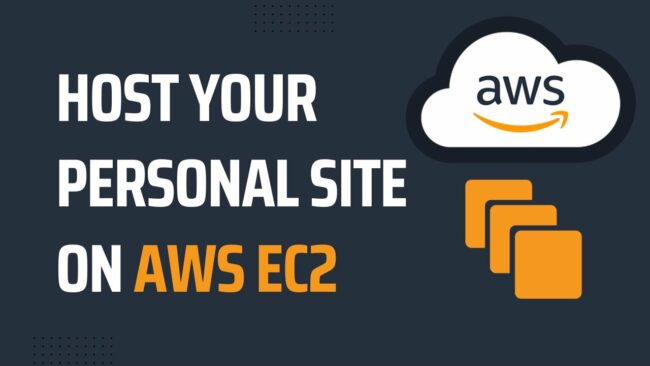In today’s digital age, having a well-designed and functional website is crucial for any business or individual looking to establish an online presence. However, with the abundance of website builders available, it can be a daunting task to choose the best one. This article presents five essential tips to help guide individuals in selecting the most suitable website builder for their specific needs and goals. By considering factors such as ease of use, customization options, pricing, customer support, and mobile responsiveness, readers can make an informed decision that will lead to a successful website.
Research the Features
When choosing a website builder, it is important to thoroughly research and evaluate the features offered by different platforms. This will ensure that the website builder aligns with your specific needs and requirements.
Evaluate your needs
Before diving into the world of website builders, it is crucial to first define your needs. Determine the purpose of your website and the specific features you require. For example, if you need to sell products online, you will want to find a website builder that supports e-commerce functionality. By evaluating your needs upfront, you can narrow down your options and focus on finding the best fit.
Consider scalability
It is important to consider the potential for growth and scalability when choosing a website builder. As your business or organization expands, you may need to add new features or functionalities to your website. Look for a website builder that offers scalability options and can handle future growth without requiring a complete overhaul of your website.
Look for drag-and-drop functionality
One feature to consider when researching website builders is drag-and-drop functionality. This allows users to easily create and customize website layouts by simply dragging and dropping elements onto a page. This intuitive feature makes it easy for anyone, regardless of technical expertise, to design a professional-looking website.
Check for mobile responsiveness
In today’s mobile-driven world, it is essential for your website to be mobile responsive. This means that the website design automatically adjusts and adapts to different screen sizes, ensuring a seamless user experience on mobile devices. When researching website builders, be sure to check if they offer mobile responsiveness, as this will ensure your website looks great on all devices.
Consider Ease of Use
The ease of use of a website builder is a crucial factor to consider, especially for those who may not have extensive technical knowledge or experience in web design.
Look for a user-friendly interface
A user-friendly interface is essential for a smooth website building experience. Look for a website builder that offers an intuitive and easy-to-navigate interface. This will allow you to quickly and efficiently build and manage your website without feeling overwhelmed or confused by complicated menus and options.
Consider the learning curve
When choosing a website builder, it is important to consider the learning curve associated with the platform. Some website builders may have a steeper learning curve, requiring more time and effort to master. On the other hand, there are website builders that are designed with simplicity in mind, allowing users to quickly grasp the basics and start building their website right away. Consider your own comfort level with technology and your willingness to invest time in learning a new platform.
Take advantage of free trials or demos
Many website builders offer free trials or demos, allowing you to test out the platform before committing to a paid subscription. This is a great opportunity to see if the website builder meets your needs in terms of ease of use. Take advantage of these free trials to ensure the platform is intuitive and user-friendly for you.
Review the Templates and Customization Options
The templates and customization options offered by a website builder are important factors to consider, as they contribute to the overall design and aesthetics of your website.
Check if there are suitable templates for your industry
When evaluating website builders, it is important to check if they offer templates that are suitable for your specific industry or niche. Having industry-specific templates can save you time and effort in designing your website, as they are already tailored to the needs and aesthetics of your industry.
Evaluate the level of customization allowed
While templates can provide a great starting point for your website, it is also important to assess the level of customization allowed by the website builder. Look for a platform that allows you to customize the templates to match your brand identity and desired aesthetics. The ability to change colors, fonts, and layouts will ensure that your website reflects your unique style and branding.
Look for options to add plugins or extensions
Plugins and extensions can greatly enhance the functionality of your website. When researching website builders, check if they offer options to add plugins or extensions. These additional features can range from social media integration and contact forms to advanced analytics and SEO tools. Having the flexibility to add these extra features will allow you to customize your website to meet your specific needs.
Assess the SEO Capabilities
Search Engine Optimization (SEO) is crucial for improving your website’s visibility and driving organic traffic. When choosing a website builder, it is important to assess the SEO capabilities it offers.
Check if the website builder offers built-in SEO tools
Some website builders come with built-in SEO tools that can help optimize your website for search engines. These tools may include features such as keyword optimization, meta tag management, and XML sitemap generation. By utilizing these built-in SEO tools, you can improve your website’s chances of ranking higher in search engine results.
Evaluate the ability to optimize meta tags and URLs
Meta tags and URLs play a significant role in SEO. When considering a website builder, check if it allows you to easily optimize meta tags and URLs. Being able to customize these elements with relevant keywords and optimized descriptions will help improve your website’s visibility in search engine results.
Consider the website builder’s integration with analytics tools
Analytics tools are essential for monitoring and analyzing the performance of your website. When assessing website builders, consider if they offer integration with popular analytics tools such as Google Analytics. This integration will allow you to track important metrics such as website traffic, visitor behavior, and conversion rates, helping you make data-driven decisions to optimize your website and improve its overall performance.
Look for E-commerce Functionality
For businesses looking to sell products or services online, it is crucial to choose a website builder that supports e-commerce functionality.
Check if the website builder supports online storefronts
Not all website builders offer e-commerce functionality, so it is important to confirm that the platform you choose supports online storefronts. Look for features such as shopping cart systems, inventory management, and secure payment gateways. These features will allow you to set up and run an online store smoothly and efficiently.
Evaluate the payment options available
When considering a website builder for an e-commerce website, it is important to evaluate the payment options that are supported. Look for website builders that offer a variety of payment gateways, such as PayPal, Stripe, or Square. Having multiple payment options will make it convenient for your customers to complete purchases and help increase sales.
Consider the inventory and order management features
Effective inventory and order management are crucial for running a successful e-commerce business. When researching website builders, assess the inventory and order management features they offer. Look for options to track inventory levels, manage product variations, and process orders efficiently. These features will help streamline your e-commerce operations and provide a seamless shopping experience for your customers.
Consider Customer Support
Having reliable customer support is essential when using a website builder, as it ensures you can get assistance when needed and resolve any issues that may arise.
Check if the website builder offers 24/7 support
When evaluating website builders, check if they offer 24/7 customer support. This means that you can reach out for assistance at any time, regardless of the time zone you are in. 24/7 support ensures that help is always available, providing you with peace of mind that any technical issues or questions can be addressed promptly.
Evaluate the responsiveness of customer support
In addition to 24/7 availability, it is important to assess the responsiveness of the customer support provided by a website builder. Look for platforms that offer fast response times and efficient problem-solving. Reading customer reviews can provide insights into the quality of customer support offered by different website builders.
Look for resources such as tutorials and knowledge bases
When considering a website builder, it is beneficial to check if they offer additional resources such as tutorials, knowledge bases, or community forums. These resources can be invaluable in helping you navigate the platform, learn new features, and troubleshoot common issues. Having access to a wealth of educational materials will allow you to maximize the full potential of the website builder.
Assess Pricing and Value for Money
Cost is an important factor to consider when choosing a website builder. Assess the pricing structure and determine if the platform offers value for money based on the features and support provided.
Consider the cost of the website builder
Different website builders have different pricing structures, so it is important to consider the cost of the platform. Some website builders offer tiered pricing plans that provide varying levels of features and support. Evaluate your budget and requirements to find a website builder that offers a suitable pricing plan for your needs.
Check if there are any hidden fees
When evaluating website builders, be sure to check for any hidden fees or additional costs. Some platforms may charge extra for premium features or add-ons. It is crucial to understand the full cost of using the website builder to avoid any surprises down the line.
Evaluate the value in terms of features and support
While cost is an important consideration, it is equally important to assess the value provided by the website builder in terms of features and support. Look beyond the price tag and evaluate the overall package. Consider the features and functionalities offered, the quality of customer support, and the potential for scalability. Choosing a website builder that offers the best value for your investment will ensure long-term satisfaction.
Read User Reviews
User reviews can provide valuable insights into the real-life experiences of others who have used a specific website builder. Reading user reviews can help you gauge the overall satisfaction level and identify any common complaints or issues.
Look for reviews from verified users
When researching website builders, look for reviews from verified users. Verified reviews are typically more reliable and trustworthy, as they come from individuals who have actually used the platform. Websites such as Trustpilot or Capterra often provide verified user reviews that can help you make an informed decision.
Evaluate the overall satisfaction level
Pay attention to the overall satisfaction level indicated in the user reviews. Positive reviews and high ratings are a good indication that the website builder has provided a positive experience for users. Conversely, numerous negative reviews and low ratings may indicate potential pitfalls or limitations of a particular platform.
Consider any common complaints or issues
Reading user reviews can shed light on any common complaints or issues faced by users of a specific website builder. Being aware of such issues will help you make an informed decision and determine if the platform’s limitations or drawbacks align with your needs and expectations.
Test the Customer Experience
Creating a test website and thoroughly evaluating the customer experience is a vital step in choosing the best website builder for your needs.
Create a test website
Most website builders offer the ability to create a test website or provide a demo version of their platform. Take advantage of this opportunity to create a sample website and explore the features and functionalities. This hands-on experience will help you determine if the website builder meets your requirements in terms of design flexibility and ease of use.
Evaluate the website loading speed
Website loading speed is a critical factor that affects user experience and search engine rankings. Use tools such as Google PageSpeed Insights or GTmetrix to test the loading speed of websites built with different website builders. This will give you an idea of how fast your website will load and help you choose a platform that prioritizes speed and performance.
Check the performance on different devices and browsers
A website should be accessible and visually appealing on various devices and browsers. When testing a website builder, evaluate how the websites built with the platform perform on different devices such as desktops, laptops, tablets, and smartphones. Additionally, check if the websites look and function consistently across different web browsers such as Chrome, Firefox, and Safari. This will ensure that your website is accessible to all users, regardless of the device or browser they are using.
Consider Long-Term Scalability
When choosing a website builder, it is essential to consider the long-term scalability of the platform. Your website needs may change and grow over time, so it is important to choose a website builder that can accommodate your future needs.
Evaluate the website builder’s ability to handle growth
Assess the website builder’s ability to handle growth and increased traffic. Consider if the platform offers scalable hosting options or if it has limitations that may hinder your website’s growth. Choosing a website builder that can seamlessly accommodate increased traffic and support your evolving needs will save you the hassle of having to migrate to a different platform in the future.
Consider the flexibility to add new features or functionalities
As your website evolves, you may need to add new features or functionalities. When reviewing website builders, consider if they offer the flexibility to easily incorporate new features as your needs change. Look for platforms that allow you to add plugins or extensions, integrate with third-party applications, or offer a wide range of customizable options. This flexibility will ensure that your website can grow and adapt as your business or organization expands.
Check for options to migrate or transfer the website
While it may not be something you immediately consider, it is important to check if the website builder offers options to migrate or transfer your website to a different platform if necessary. This can be crucial in the event that you outgrow the website builder or decide to switch to a different platform in the future. Knowing that you have the option to easily transfer your website will provide peace of mind and give you the freedom to make changes if needed.







